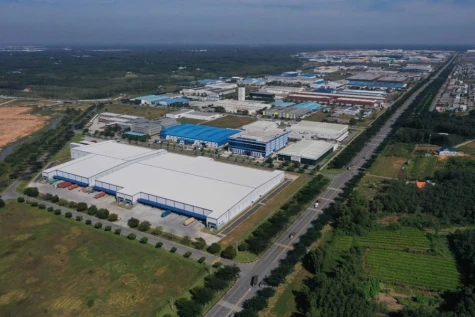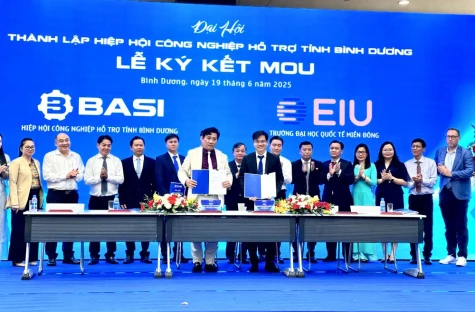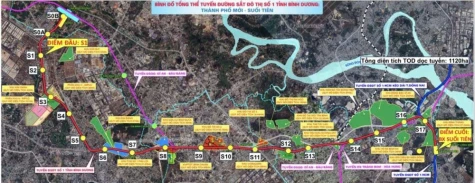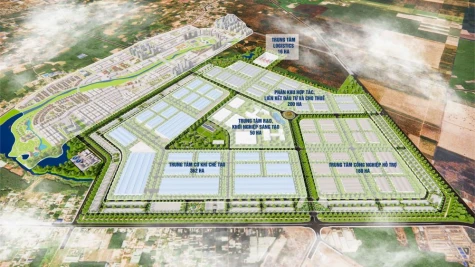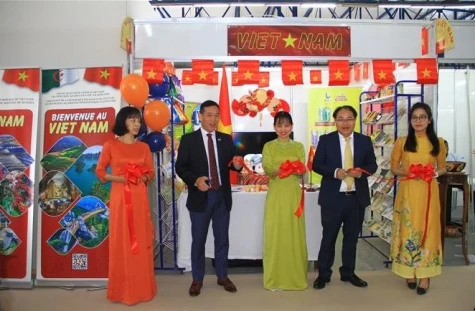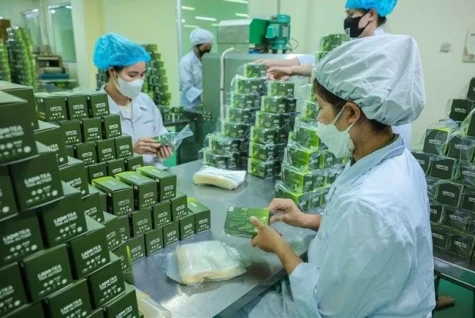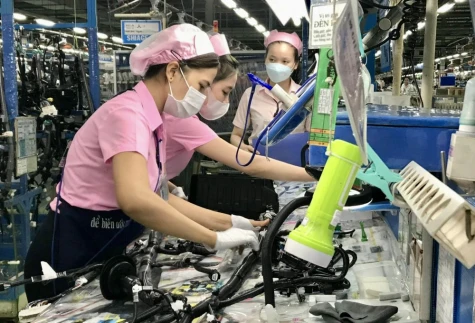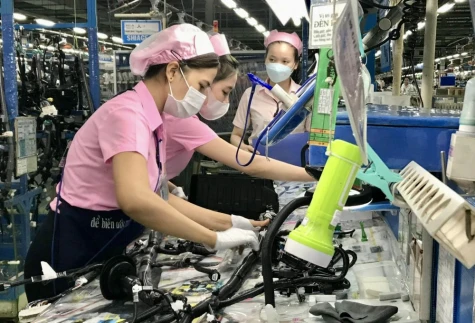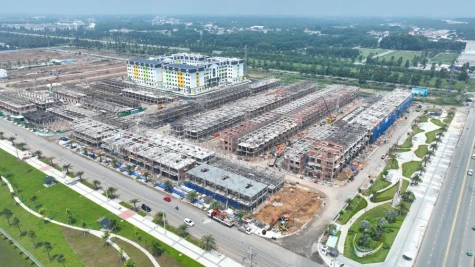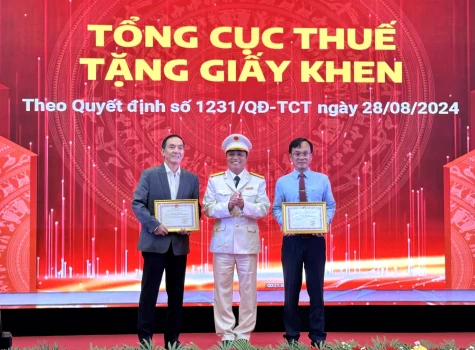On December 31, 2024, the Government issued Decree No. 180/2024/ND-CP stipulating the continued reduction of 2% in value-added tax rates for groups of goods and services specified in Resolution No. 43/2022/QH15 of the National Assembly from January 1, 2025 to June 30, 2025 (referred to as Decree No. 180). This support policy motivates the business community as well as people to develop production and business.

Practical support
According to economic experts, value-added tax (VAT) is an indirect tax; the decision to reduce VAT not only supports economic growth but also stabilizes the macroeconomy and controls inflation, thereby contributing to supporting production and business activities of enterprises, helping the economy to recover soon and develop stably again.
Mr. Phan Cao Phuc, Vice President of Binh Duong Real Estate Association, said that tax reduction will help the economy recover and develop, because this policy will have multi-dimensional impacts on the economy, bringing different benefits to people and businesses. According to Mr. Phuc, reducing VAT makes the supply-demand balance of the economy closer together, from which the market will establish a new price lower than the price without tax reduction. This will also contribute to reducing inflation rates in the coming time.
Mr. Tran Thanh Trong, Chairman of the Binh Duong Electromechanical Association, stated that the reduction in VAT not only decreases the tax burden on businesses but also helps stimulate consumer demand. Over the past two years, total demand has been declining while total supply has been increasing. Consequently, when VAT is reduced, it benefits businesses, individuals, and consumers alike.
Ms. Cao Thi Linh Anh, a resident of Phu Tho Ward in Thu Dau Mot City, shared that in the past, consumers had to pay a 10% VAT when shopping for goods. However, for many essential items, this rate has now been reduced to 8%. She expressed her excitement about being able to purchase the goods she needs at more affordable prices.
Apply tax policy correctly
The current implementation of VAT has several limitations. Many individuals and businesses struggle to understand the regulations, and businesses often fall behind on which items are eligible for tax reductions and which are not. Additionally, they face challenges in looking up and comparing product and service codes to correctly apply the 8% VAT. As a result, both businesses and individuals recommend increasing awareness efforts to improve understanding of the policies and ensure correct application. They also suggest establishing open information channels and hotlines to help people and businesses access information and communicate their issues to tax authorities for prompt resolution.
According to Decree No. 180, business establishments that calculate VAT using the deduction method can apply a VAT rate of 8% on eligible goods and services, as stated in Clause 1, Article 1 of the decree. Additionally, business establishments—including households and individual businesses—that calculate VAT using the percentage method on revenue are entitled to a 20% reduction in the percentage rate used for VAT calculations when issuing invoices for goods and services that qualify for this VAT reduction. |
The Provincial Tax Department has stated that following the VAT reduction policy issued by the National Assembly, the Binh Duong Provincial Tax Department provided clear instructions through its information channels to help businesses and taxpayers understand the tax reduction policy effectively. Accordingly, Decree No. 180 clearly stipulates that VAT reduction regulations will continue to be implemented for groups of goods and services currently subject to a tax rate of 10%, except for the following groups of goods and services: Telecommunications, financial activities, banking, securities, insurance, real estate business, metals and prefabricated metal products, mining products (excluding coal mining), coke, refined petroleum, chemical products; goods and services subject to special consumption tax; information technology products according to the law on information technology.
The reduction of VAT for each type of goods and services is applied uniformly at the stages of import, production, processing, and commercial business. For coal products that are mined and sold (including coal mined and then screened and classified according to a closed process before being sold), VAT reduction is not allowed at stages other than the mining and selling stage. Corporations and economic groups that implement a closed process to sell are also subject to VAT reduction on coal products sold. If goods and services listed in Appendices I, II, and III of Decree No. 180 are either exempt from VAT or subject to a 5% VAT according to provisions of the Law on VAT, then provisions of the Law on VAT shall be applicable, and VAT will not be reduced.
The Provincial Tax Department has announced that, during the implementation of Decree No. 180, tax authorities at all levels will monitor and inspect the selling prices of goods and services provided by enterprises and organizations in the area. If any violations are found during the inspection process, the tax authority will recommend to the appropriate authorities that strict action be taken in accordance with the law.
Reported by Thanh Hong - Translated by Ngoc Huynh








